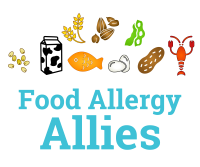Food insecurity has many long term negative effects on families. From decreased nutrition to higher risks of disease, food insecurity can change a person’s life for the worse. Food insecurity is not just a matter of hunger; rather, it is a matter of education, mental health, physical health, and public safety.
1. Poor nutrition
Families experiencing food insecurity are often forced to consume poor quality food due to financial strain. After all, four burgers from McDonalds will feed your family dinner for under $5 while a bag of fresh cherries will cost the same $5 and provide only a snack. Fresh foods, organic foods, and healthy foods are on average twice as expensive per serving as junk food. Continued reliance on unhealthy food has many detrimental side effects especially for children, including obesity, stunted growth, and developmental impairments in areas such as behavior, language, and motor skills.
2. Poor performance in school
For kids experiencing hunger, focusing in school can feel like an impossible task. Children need to be able to concentrate in school in order to be prepared to enter the workforce as educated adults. However, when your stomach is growling with hunger, it can be difficult to pay attention, follow directions, and complete tasks. In fact, research shows that children from families who face insecurity are more likely to have lower scores and repeat a grade. Poor performance in school can have even more consequences down the line when it becomes difficult to get a job and make a living wage, thus continuing the cycle of food insecurity.
3. Serious health conditions
Food insecurity can lead to a number of health conditions stemming from a lack of calories, a lack of proper nutrition, and too much unhealthy food. Diabetes, high cholesterol, asthma, and high blood pressure, to name a few, are all major health conditions that can be caused by food insecurity. Additional health problems can also arise when families choose to forgo buying medicine in favor of buying food.
4. Mental health challenges
Food insecurity is associated with a 253% higher risk of depression and a 257% high risk of anxiety. For comparison, losing a job during the pandemic only causes a 27% increase in the risk of depression. Food insecurity is not only related to depression and anxiety, but also to higher stress levels. When people do not know how they will find their next meal, they are often forced to make many highly stressful decisions such as prioritizing food over electricity, or water over heat.
5. Crime
Research has shown that a 1% increase in food insecurity correlates to a 12% increase in the violent crime rate. When families are faced with food insecurity, they may turn to crime in order to gain access to the money needed to purchase foods. As expected, crimes that result in monetary gain, such as burglary, are most affected by food insecurity.
Article sources:
tigerprints.clemson.edu
https://www.healthaffairs.org/doi/10.1377/hlthaff.2015.0645
https://www.ncbi.nlm.nih.gov/pmc/articles/PMC6095760/
https://bmcpublichealth.biomedcentral.com/articles/10.1186/s12889-021-10631-0
https://www.feedingamerica.org/hunger-blog/help-kids-facing-hunger-this

